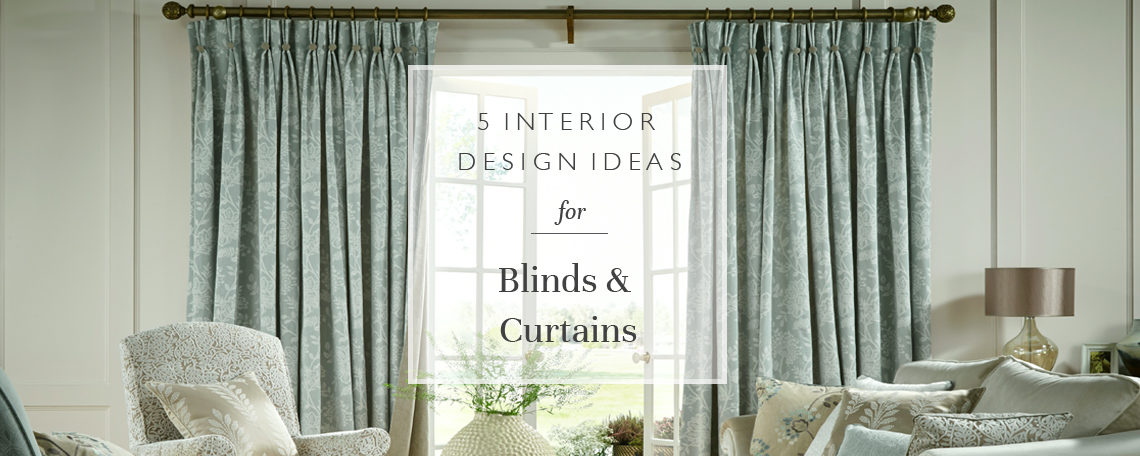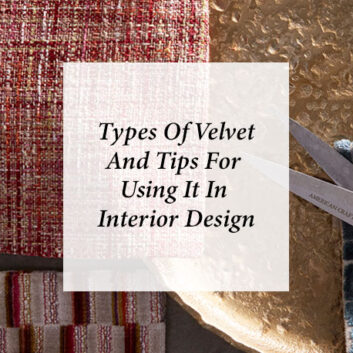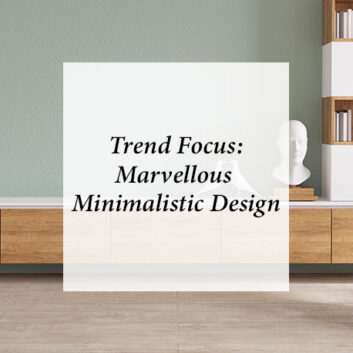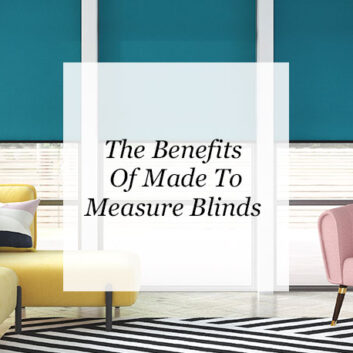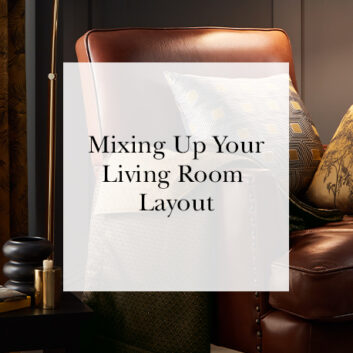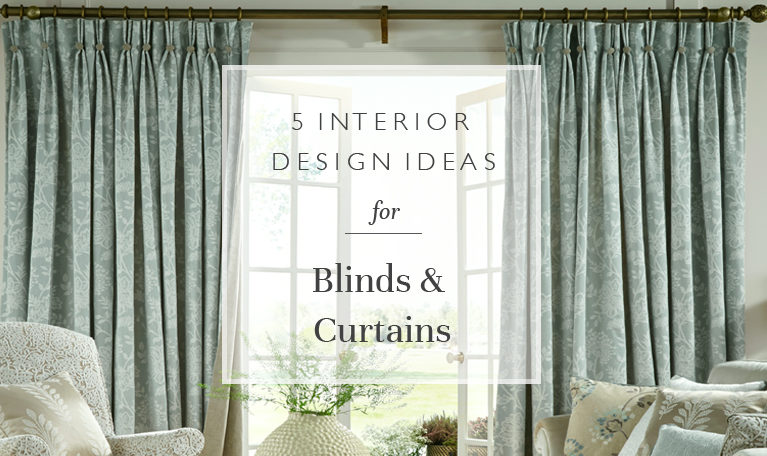
5 Interior Design Ideas for Blinds & Curtains
Whether for your living room, kitchen, bedroom or home office, the window dressings you choose make a huge difference to the look and feel of the space. Curtains and blinds aren’t just functional features; while their primary purpose is to offer light control and privacy, they can also bring a whole new dimension of style and texture to your room.
But what if you’re unsure of how to dress your windows? And how can you achieve your desired effect? We are going to run through five different interior design ideas for your window dressings, explaining how simple it is to create a particular look.

Layering
Layered dressings are a surefire way to spruce up your window and elevate the overall style of a space. Mix and match patterns for a vibrant and eclectic look, perfect for a room that’s lacking in personality.
Muted complementary tones are a softer solution, bringing relaxed and feminine vibes to the space. You could also search out unusual colour and texture combinations that will make your window dressing truly unique.
By layering curtains upon a roller or wooden blind, you can make your window look bigger. Placing the pole several inches higher than the recess will also help to make the ceiling look higher. Alternatively, you could layer voiles under existing curtains, which help with light control as well as bringing a soft, whimsical touch to the area. Singular or dummy curtains are also a cost-effective way to enhance a window with an existing blind.
There are no rules when it comes to layering your blinds and curtains, but it’s always worth considering requirements of a space. This ensures that your window dressings are functional as well as looking great.
For instance, your kitchen window furnishings should be easy to clean, bedroom blinds will have blackout properties, and your living room dressings should offer warmth and privacy. Once you’ve got the functional features nailed, it’s time to get creative.
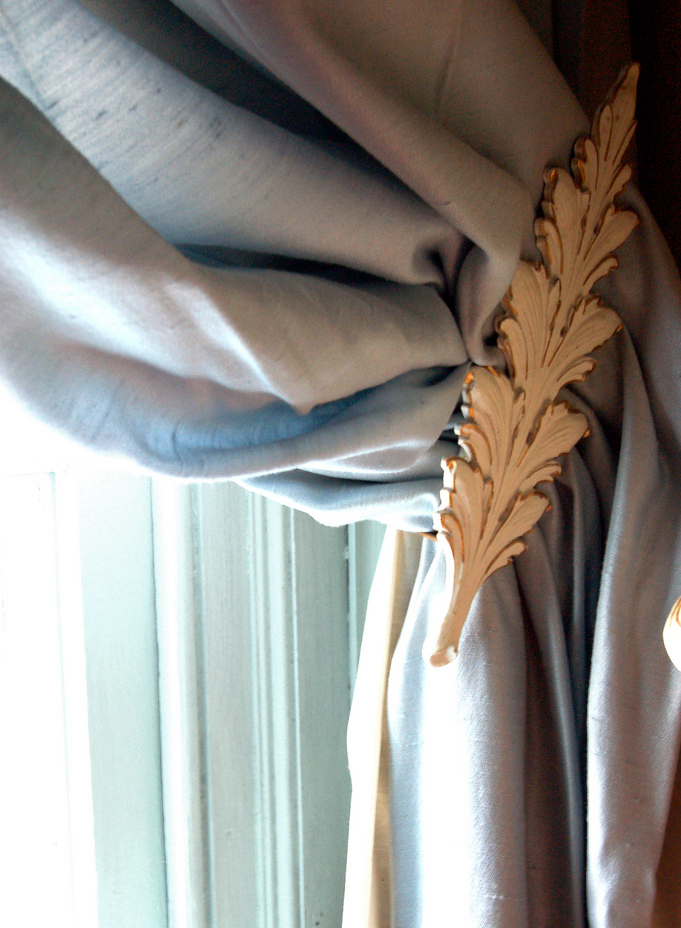 Tiebacks & holdbacks
Tiebacks & holdbacks
Style up your curtains with statement tiebacks or holdbacks, the final ‘accessory’.
These finishing touches will enhance your window dressing whilst also providing a useful function, allowing you to enjoy the best possible views outside and maximum sunlight.
Tiebacks can be selected in the same or a contrasting fabric to your curtains, depending on your preference for classic or modern design. A simple tieback will complete your curtain arrangement with understated charm, creating neat folds of fabric and smooth, simple lines. On the other hand, rope and tassel ties bring traditional sophistication, while chains and jewelled designs channel an unusual opulence.
When it comes to holdbacks, consider sleek, simple metal curves or detailed doorknob versions, both offering a different sense of style. Think about how you want your curtain fabric to sit and fall; do you prefer a neat and tidy arrangement, an effortless casual style, or a romantic billowing effect?
Remember, you needn’t spend a fortune when styling up your window dressings. A little bit of DIY goes along way; why not enhance your existing tiebacks by decorating them with lace or pom-poms for a personalised effect?
Photo credit: Taber Andrew Bain
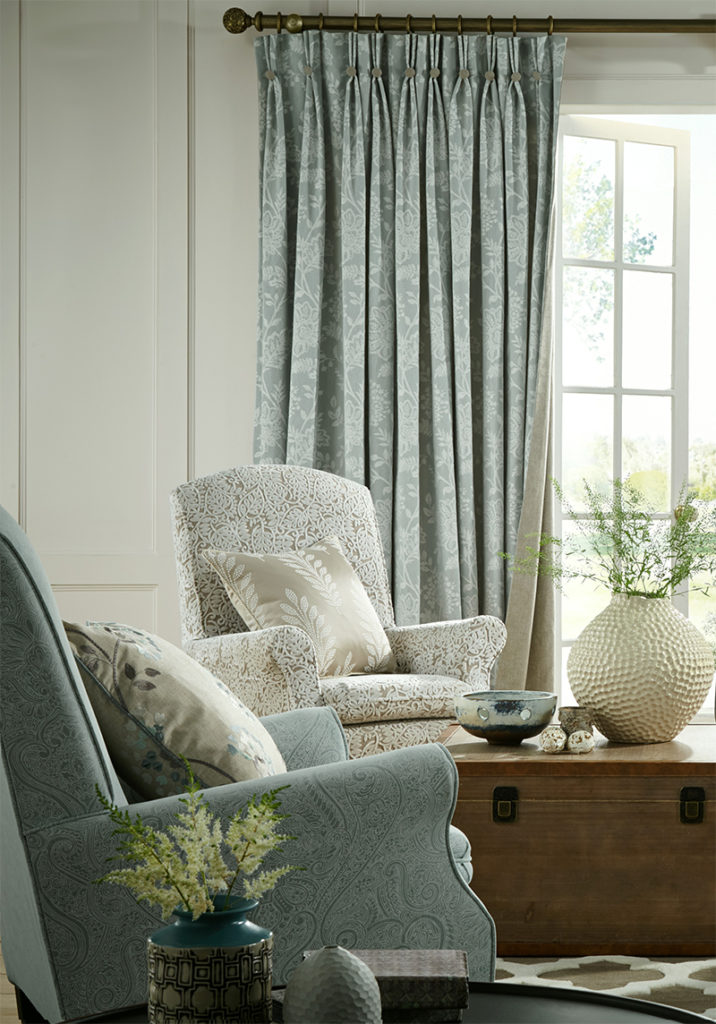 Statement poles
Statement poles
A curtain pole is more than just a device for hanging your curtains – it is the crowning glory of your window furnishing.
Choose a pole that will complement your decor and tone with existing furniture and accessories, whether that’s wood, brass or wrought iron.
When selecting your curtain pole, consider the appearance of the curtains that you’ll be using. Fabric, texture, colour and pattern will all dictate the type of pole you should opt for, ensuring that it’s complimentary as well as being sturdy enough for the weight of the fabric.
With regards to sizing, a thick pole will make a small window look larger. The higher it is the placed, the more space will be maximised. If your windows are especially large, you may require extendable curtain poles. This feature is becoming more and more popular, allowing more customers to discover a pole that suits them both in terms of size and style.
Finials will also make a huge difference to the look and feel of your curtain pole. For instance, crackled glass brings a modern edge, smooth metal is ever-stylish, and carved wood exudes a more traditional and rustic feel. The curtain rings you use will also help to complete the look. Coordinate them with your curtain pole for a polished look, or choose finials and rings that contrast the pole for a quirky individual style.
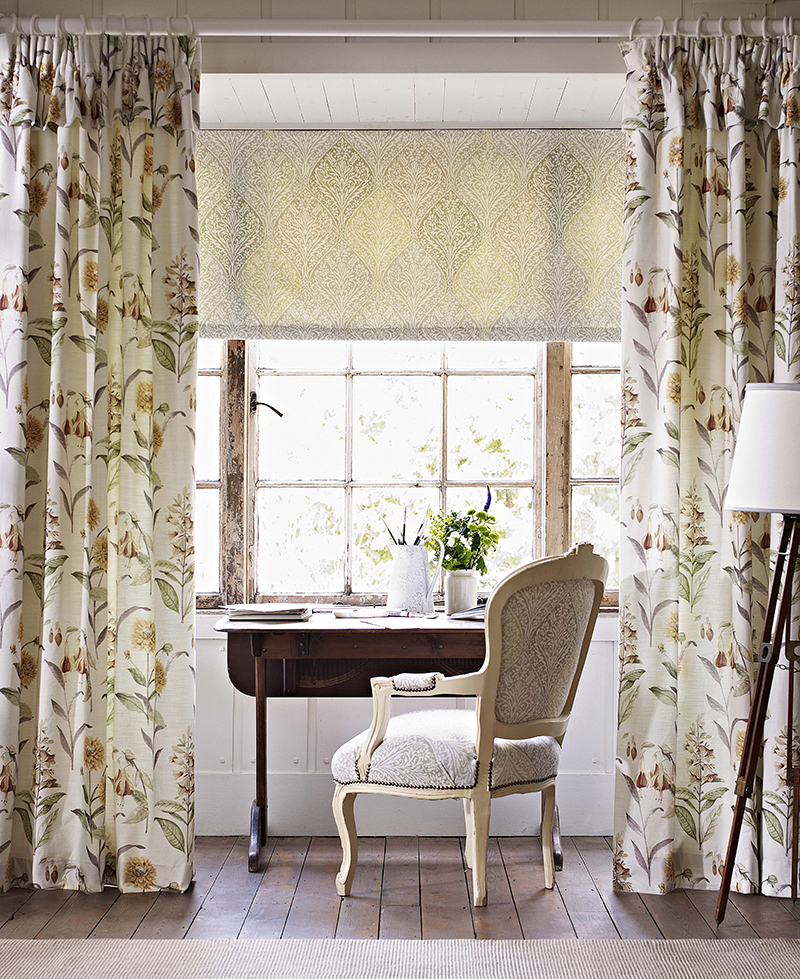 Contrast
Contrast
Contrast comes in different forms. From colour and pattern to texture and shape, there are many different ways to create eye-catching contrast in interior design. Contrasts bring visual interest to a space and channel positive tension, which make a room far more stimulating.
One of the simplest way to create a contrasting window dressing is layering two different styles upon one another. Not only does this offer more privacy and light control, but it brings a unique edge to your space.
There are plenty of other techniques for creating contrast with your window dressings, too. For instance, a contrasting fabric on the lining of a curtain will offer a stylish surprise when they’re pulled back. Secure with a tieback or holdback to show this contrast off effectively.
You could also consider a contrasting pelmet for your curtains, toning in a plain colour or making a punchy statement with pattern. This same method works well for a panel at the bottom of your curtains. Voiles and muslin fabrics alongside curtains and blinds will also bring an element of contrast; fabrics in different opacities brings an interesting juxtaposition.
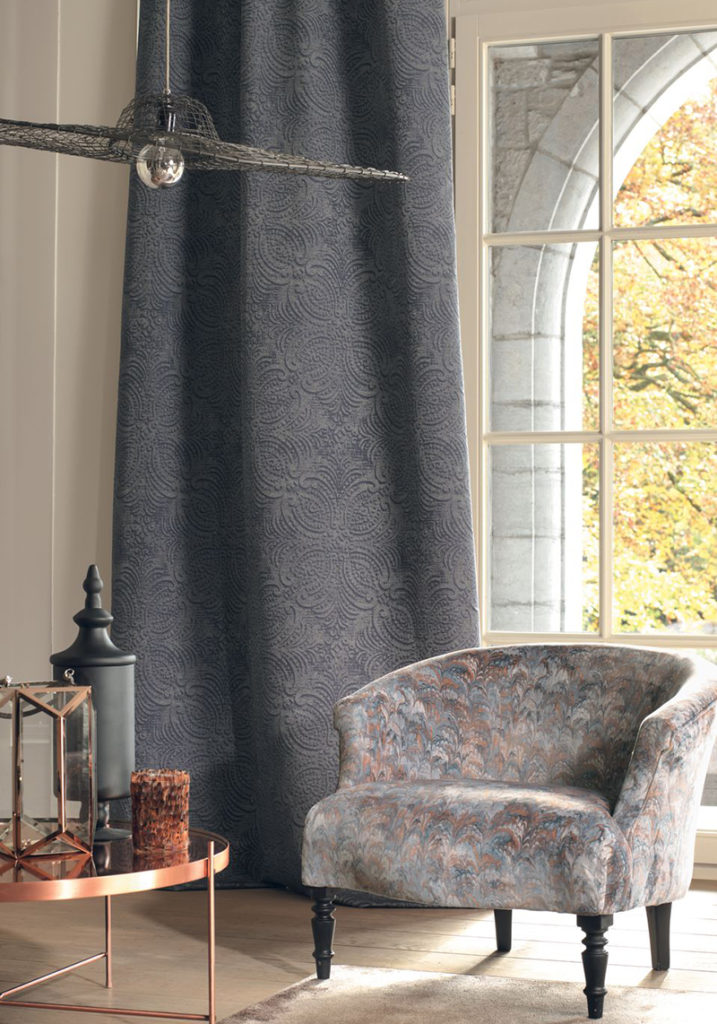 Flow
Flow
Avoid a jarring, choppy feel in your interior by carefully considering the flow of colours, textures and shapes. Your blinds and curtains can contribute to this continuity and help to tie the rest of your space together, creating fluid and stylish interior design that’s extremely easy on the eye.
Achieve flow by mixing up different tones of one particular fabric, or combining various textures of one colour theme. For example, shades of blue in silk blends will glide down your window frames, whilst a combination of linen and velvet in warm grey will bring a soft, supple look.
You can also make a bolder statement by displaying one colour palette in a variety of patterns, such as florals with checks, or stripes combined with a damask print.
If you’re struggling to select the right window dressing, look to your other items of furniture for inspiration. Picking out one particular tone from a statement piece of artwork, for example, is a great place to begin.
Floor to ceiling curtains will also bring a sense of flow. Let the fabric fall to floor level, with a little extra in the length for a luxurious drape. Consider a hidden curtain track for a truly free-flowing style, giving your window dressings a wall-to-wall effect.
Are you looking for more interior design inspiration? Be sure to explore our full range of window blinds and home accessories by clicking here. You can also take advantage of our FREE Personal Shopping Service by contacting our experts directly: [email protected] or 01924 848739 (8:30-4:30 MON-FRI)


